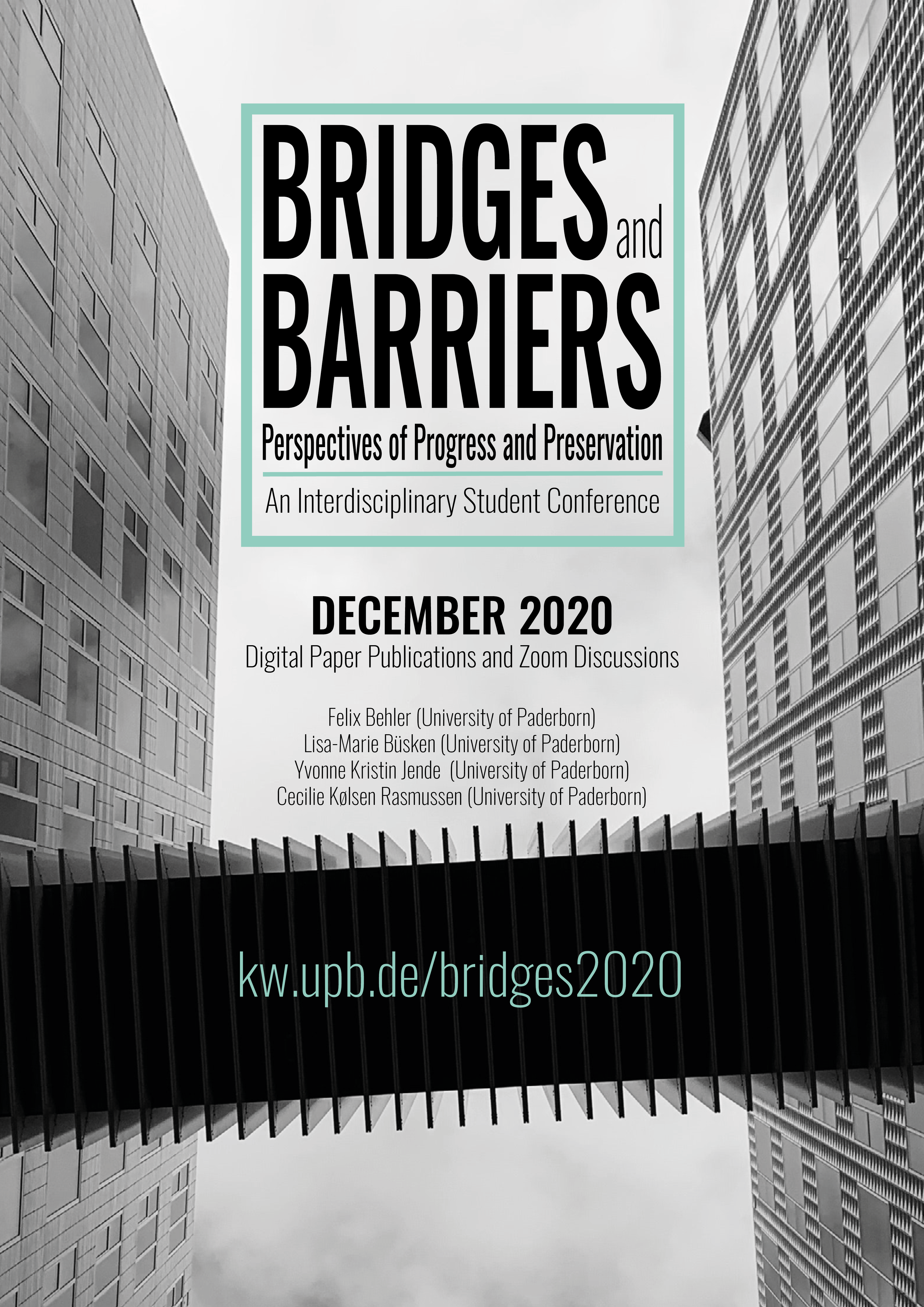Bridges and Barriers: Perspectives of Progress and Preservation
Brexit, the Trump Wall, and the Left-Right-Divide; it seems the bridges of the world are crumbling, and new barriers are put up every day. While retrogression apparently meets the current zeitgeist, the pursuit of progress has been one of humanity’s main interests since the dawn of time. Whether it be the technological progress from the invention of the wheel to humanoid robots or societal progress from the development of the first democracies in ancient Greece to the implementation of human rights in international law; progress – both rapid and slow – has been the driving force that moved humanity in all areas of research. But progress does not always have to happen on a global or public scale, it is an integral part of our private lives as well: relationships we establish over time, things that we learn, and the self-concepts, identities, and mannerisms we develop; progress is a part of all of us.
However, progress always follows in the footsteps of tradition and heritage, and while the new derives its value from the old – either in opposition to it or as its advancement – the change involved in progression often motivates preservation efforts in turn. Certainly, there are just as many good reasons for preservation as there are for progressive actions. And yet, it is often ambiguous who or what determines what should be preserved and which direction progress should take.
The many relations and intersections between progress and preservation thus beg the question whether progress could constitute a barrier for preservation, and preservation ceteris paribus bar progress, or whether it is possible to build a bridge between trend and tradition. Are preservation and progress mutually exclusive? Is, for example, environmental preservation possible if human progression is the goal? Can the old be preserved while making space for the new? Is progress an eternal endeavor or will it someday come to a conclusion? Does progress always mean progression or can retrogression in some circumstances actually be the most progressive? And, can progress be measured at all or is it merely a matter of perspective?
Online Discussion 2021
In consequence of the present SARS-Cov-2 pandemic, this conference has become a digital paper publication project. To protect and ensure everyone's physical well-being, we will not be able to hold traditional face-to-face panels. Instead, we will publish our contributors' papers online.
Access our contributor's papers here.
Starting January 15, 2021, we will hold a series of Zoom discussion panels until February 12, 2021.
Please find the schedule for these short presentation and discussion panels here.
All guests are welcome and participation is free of charge.
To register for our Zoom discussions, please click here.







